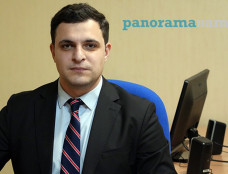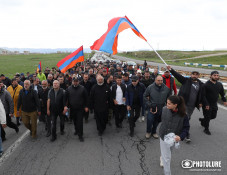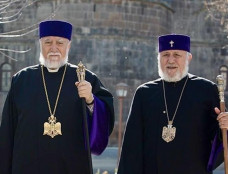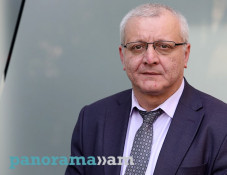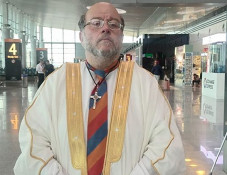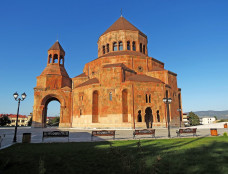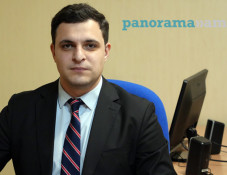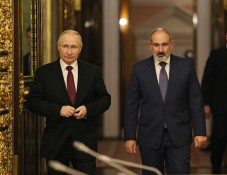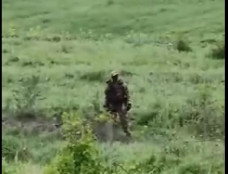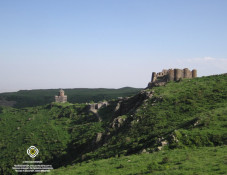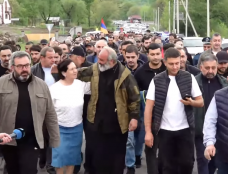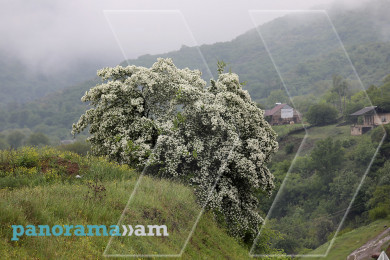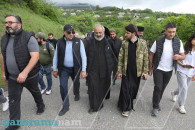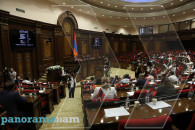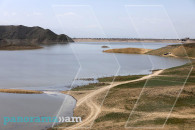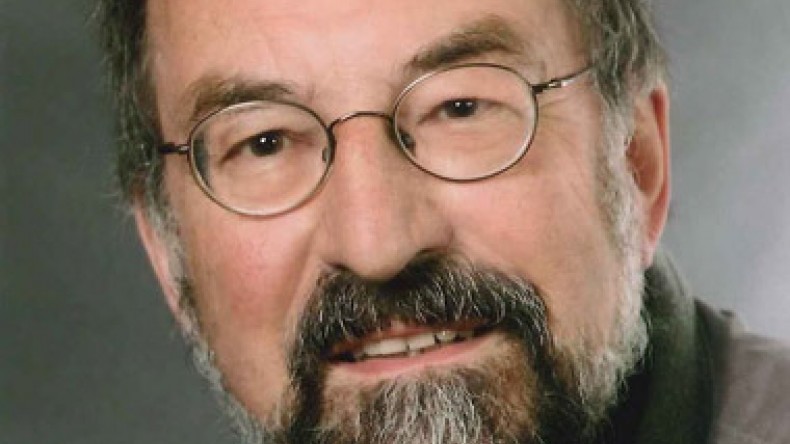
Otto Luchterhandt: Azerbaijan’s position to use force against Karabakh is contrary to international law
By Nvard Chalikyan
Even though the Nagorno-Karabakh war was concluded in 1994 with the signing of a ceasefire agreement, Azerbaijan has constantly and openly been threatening to start a war to “solve” the conflict unless a peaceful agreement is achieved – this has been the official position of Azerbaijan. To this end Azerbaijan has been acquiring increasingly sophisticated weaponry (with its military budget already exceeding the entire Armenian national budget) and has been rejecting the proposals of the OSCE Minsk Group Co-Chairs for reinforcing the ceasefire such as removing snipers from the line of contact on which a great number of deaths are registered each year.
The international community condemns the threats of the use of force by Azerbaijan as well as the ceasefire violations, each time restating that there is no alternative to the peaceful settlement of the conflict.
Azerbaijan however claims that it has the right under the international law to use force to take back its territories. Not only have the President of Azerbaijan and other high-ranking officials stated this many times in their public speeches, but this has also been included in the recently adopted military doctrine of Azerbaijan, which states, “Following the Republic of Armenia’s continual occupation of a part of the territory of the Republic of Azerbaijan… Azerbaijan reserves the right, in accordance with international law, to use any necessary means, including force, to restore its integrity.” Azerbaijan also grounds its rejection of ceasefire reinforcing mechanisms arguing that “if the mechanism is put to work now, it would mean consolidating the status quo, which is unacceptable for Azerbaijan”, as Azerbaijani Foreign Minister Elmar Mammadyarov has put it.
It is thus imperative to address the question of the legality of this stance pursued by Azerbaijan, which has in fact not been given due assessment. In this regard we present to your attention the review of the article by German professor of international law at the University of Hamburg Otto Luchterhandt titled Learning from Georgia: A non-use of force treaty for Nagorno-Karabakh published in the book Europe’s Next Avoidable War, eds. by M. Kambeck and S. Ghazaryan, 2013 (pp. 211-223). The article analyzes the legal aspect of the use of force in the case of Nagorno-Karabakh and concludes that the militaristic stance officially pursued by Azerbaijan is contrary to the international law. Also, drawing upon the experience of 2008 war in Georgia the author recommends that a non-use of force treaty between the parties to the Karabakh conflict should be signed without further delay to avoid a similar scenario.
Below is the summary of the article.
Azerbaijan justifies its militaristic stance by referring to the “occupation” of its territories and cites the right to self-defense under the international law, quoting Chapter 7, Article 51 of the UN Charter (the right of self defense). However the official position of Azerbaijan to retake territories, including Nagorno-Karabakh, is not compatible with the international law, argues Luchterhandt.
First, Luchterhandt writes, Azerbaijan (as well as Armenia and Nagorno-Karabakh) is bound by international law to “refrain from the threat or use of force”, which is a peremptory norm of international law (jus cogens) and is one of the fundamental principles of the UN Charter. Second, Azerbaijan wrongly cites the right of self-defense embedded in article 51 of the UN Charter. It is true that article 51 is the only exception from the non-use of force requirement; however Azerbaijan cannot refer to this article to justify launching a war. The article specifically says, “Nothing in the present Charter shall impair the inherent right of individual or collective self defense if an armed attack occurs against a member of the United Nations, until the Security Council has taken measures necessary to maintain international peace and security.” This means, as Luchterhandt explains, that “Azerbaijan can appeal to the right of self-defense only if, and as long as, an ‘armed attack’ occurs”. However, this has not been the case – the war was concluded in 1994 with the signing of a ceasefire agreement and since then the Armenian forces have launched no armed attack against Azerbaijan and thus Azerbaijan cannot use force in self-defense under this article.
Further, Azerbaijan grounds its position on an extended definition of aggression given by the International Court of Justice (ICJ) according to which an ‘armed attack’ can also include an "occupation of a territory” of one state by another. However, if this definition applied to the case, the right to self-defense still could not justify the launching of war on the part of Azerbaijan now. “What the Azerbaijani government is failing to recognize, is that on 11 May 1994 the parties (Azerbaijan, Nagorno-Karabakh and Armenia) reached a ceasefire agreement… based on the Bishkek Protocol”, - says Luchterhandt. Thus by signing the ceasefire agreement Azerbaijan has taken up a legal obligation to preserve the ceasefire. Dr. Luchterhandt reminds that the Bishkek ceasefire agreement has “the same legal value as an international treaty” and most importantly it has “a permanent effect”. Furthermore, the obligation of Azerbaijan under the international law to refrain from the threat or use of force refers also to “international lines of demarcation, such as armistice lines” as embedded in the 2625 (XXV) Declaration on Principles of International Law concerning Friendly Relations, which perfectly applies to the case of the Ceasefire Protocol.
Luchterhandt goes on to explain further,
“What is the relationship between the Bishkek Ceasefire Protocol and Azerbaijan’s right to self-defense? The answer is clear: Azerbaijan is bound to respect the ceasefire for the entire duration of the protocol, which is indefinite. Correspondingly, it has to renounce carrying out any military efforts or actions. Consequently, Azerbaijan’s theoretic right as a state to self-defense according to article 51 of the UN Charter, is in the specific case of the Karabakh conflict, being superimposed by the Bishkek Ceasefire Protocol, and is therefore limited by the obligation of a ceasefire and of non-resumption of military activities. Azerbaijan can appeal to the full right of self-defense again only when the ceasefire is interrupted by the Armenian side, thus becoming obsolete because of the new “armed attack”, as indicated in the article 51 of the UN Charter.”
Luchterhandt also notes that the occasional skirmishes on the border do not render the ceasefire agreement obsolete, because there is no documented evidence as to which side was the first to violate the ceasefire and because the incidents of ceasefire violations qualify below the level of an “armed attack”. Furthermore, it is possible to talk about “armed attack” only when “military force is used against another state in a massive and coordinated way”, which has not been the case.
Thus Luchterhandt concludes, “The political position of Azerbaijan, that the conflict can be solved by force according to the political discretion of the country, is contrary to international law. This position contradicts the non-use of force in relation to the ceasefire lines agreed in the Ceasefire Treaty… and should be deeply worrying for the entire international community”.
The author also warns against the dangers posed by the “irresponsible leadership of Azerbaijan” and in this regard he makes a comparison with the situation in Georgia prior to the 2008 war. He points to the fact that prior to the war Georgia had been pursuing the very same policy as Azerbaijan holds today. Notwithstanding the fact that Georgia, based on a number of agreements, was obliged to solve the conflict with South Ossetia by peaceful means, Georgian President had repeatedly declared in public that if necessary Georgia would be ready to re-establish its sovereignty by using force against South Ossetia. When Georgia actually did use force it breached its international obligation of refraining from the use of force.
Professor Luchterhandt recalls that prior to the military aggression exercised by Georgia the UN mission in Georgia (UNOMIG) had been trying to persuade Saakashvili to conclude a non-use of force agreement, to which however the Georgian President would not agree. If this agreement had been signed, it would have considerably increased the obstacles to launching a new war, argues the author and advises the states, which are in a political situation similar to that of Georgia prior to 2008, to learn the lessons from the outcome of the Georgian war.
Drawing on the example of Georgia Luchterhandt urges the international community to pay greater attention to strengthening the legal and political obstacles created to prevent breaches of international law and using force. In the case of Nagorno-Karabakh he thus suggests that an independent non-use of force agreement should be concluded between all the parties: “Applying this to the Nagorno-Karabakh conflict, it follows that the first objective of the international community must be to compel the three parties in the conflict – through political and diplomatic pressure – to reach an effective non-use of force agreement. This task is particularly assigned to the Co-Chairs of the Minsk Group.”
According to the author this non-use of force agreement should be concluded independently from the major negotiations regarding a solution to the Karabakh conflict, which would create a basic level of trust between the conflicting parties. He believes this would increase the respect of the international law and would lead to a greater security and stability.
Newsfeed
Videos






